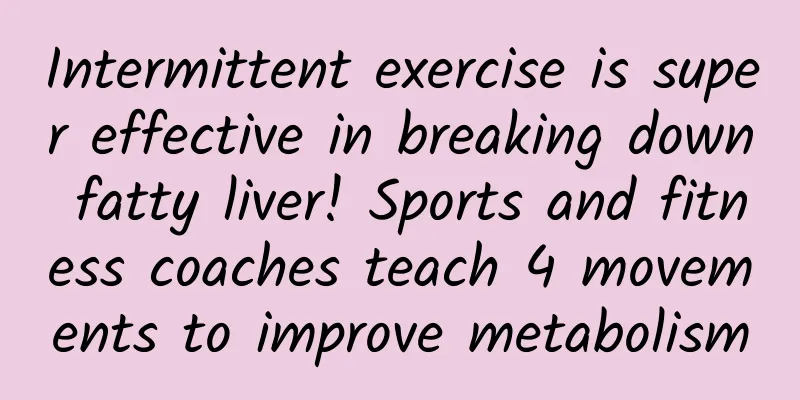Isn’t eating fruit for dinner not only easy to make you fat? Will it also develop a fatty liver physique? Nutritionists teach you whether to eat right or not

|
Taiwan, with its subtropical climate, has been known as the "Fruit Kingdom" since ancient times, and a variety of delicious fruits can be enjoyed all year round. However, recently there has been a widespread saying on the Internet that "the habit of eating fruit after dinner will not only make you fat easily, but will also develop a fatty liver physique", and everyone is urged to pay attention. But if you want to avoid fatty liver and fat accumulation, is it really best not to eat fruit for dinner? Maybe the answer is different from what you think. Is it easy to gain weight by eating fruit for dinner? Developing fatty liver? Nutritionist: Time is not the real issue Nutritionist Liang Jiawei said that this statement is only half right! Why? He emphasized that we should first start with the dinner time! If people do not eat much for dinner, then there is no big problem in eating fruit at dinner time. However, due to the influence of changes in work and lifestyles of modern people, dinner is generally eaten late. In addition, most people want to reward themselves for their hard work throughout the day. In addition, dinner is the only time in the day when they can spend time with family and friends and enjoy delicious food together. Therefore, many people are prone to overeating and eating too much food at dinner. So in this case, if people develop the habit of eating fruit after dinner, it will naturally increase the metabolic burden on the liver, greatly increasing the risk of suffering from obesity, fatty liver and other diseases. It is precisely because the amount of food intake is an important key to the occurrence of fatty liver and obesity problems, so it can be said that only half of the statements circulating on the Internet are correct. According to the National Health Administration's 2013-2016 National Nutrition and Health Status Change Survey, 86% of adults aged 19 to 64 in Taiwan consume less than 2 servings of fruit per day. Therefore, nutritionist Liang Jiawei reminds that for those friends who are accustomed to eating big meals and delicious food for dinner, it is recommended that they try to distribute the food intake of the three meals appropriately. If you eat a lot at dinner, you should be moderate in breakfast and lunch; and choose to move the consumption of fruit between meals three times a day. This is a good way to help increase satiety, reduce food intake at three meals, and reduce the occurrence of the above problems. As many as 86% of adults in Taiwan consume less than 2 servings of fruit per day! Nutritionists urge people not to give up eating because of fear Therefore, summarizing the above reasons, nutritionist Liang Jiawei pointed out that the time when fruit is eaten is not the key point that causes obesity and increases the chance of fatty liver. The most important influencing factor is the amount! From a nutritional point of view, if the human body eats too much fruit, it is indeed easy to consume too much fructose, causing the liver to synthesize more lipids during the digestion and metabolism process, which will also cause the triglyceride concentration in the blood to increase, increasing the risk of fatty liver. However, nutritionist Liang Jiawei also emphasized that for the above statement to be valid, the most critical premise is to meet the conditions of excessive fruit consumption and excessive fructose intake. Therefore, people should not ignore the importance of moderate supplementation of fresh fruits because of fear of choking! In fact, according to the National Health Administration's 2013-2016 National Nutritional Health Changes Survey, it was found that 86% of adults aged 19 to 64 in Taiwan consume less than 2 servings of fruit per day. What's more, fruit still plays an important role in providing a source of nutrition among the six major food categories. It can provide the human body with a variety of vitamins, phytochemicals and other antioxidants needed to maintain physiological functions. It is an important food that is indispensable to the human body. Therefore, it is especially reminded that friends who always eat out for three meals a day and live alone must pay special attention to whether their daily vegetable and fruit intake is sufficient. According to the national dietary guidelines, people should develop a "579, fruits and vegetables" eating habit depending on their age and gender. That is, children under 12 years old are recommended to consume 5 servings of fruits and vegetables (3 vegetables and 2 fruits) per day, women 7 servings (4 vegetables and 3 fruits), and men 9 servings (5 vegetables and 4 fruits) to meet daily nutritional needs. How do you know if you are eating enough fruit every day? Gender and age are different, the 579 ratio of fruits and vegetables is the standard for eating correctly. But I believe that after reading this, many people will want to ask, how do I know if I eat enough fruit every day? Nutritionist Liang Jiawei also gave a special explanation on this. He mentioned that according to the national dietary guidelines, people should develop a "vegetables and fruits 579" eating habit depending on their age and gender. That is, children under 12 years old are recommended to consume 5 servings of fruits and vegetables (3 vegetables and 2 fruits) per day, women 7 servings (4 vegetables and 3 fruits), and men 9 servings (5 vegetables and 4 fruits) to meet daily nutritional needs. As for how much is in one serving of fruit and how people should calculate it, nutritionist Liang Jiawei said that from a nutritional point of view, one serving of fruit has about 60 grams of calories and about 15 grams of sugar. If converted by size, it is about the size of a girl's fist, equivalent to an apple, 1/4 of a cantaloupe; or the amount of diced fruit filling a 180 ml paper cup. Already have obesity or fatty liver problems? Nutritionists teach you to pay attention to the GI value of fruits and make the right combination In addition to paying attention to the amount of food, nutritionist Liang Jiawei also mentioned that if people already have problems with obesity or fatty liver, then it is recommended that they carefully choose the types of fruit they consume daily and pay extra attention to why their GI values are better. Try to choose fruits with lower GI values such as cherries, grapefruit, pears, citrus, cherry tomatoes, etc., and replace them with high GI fruits in moderation. For example, if the recommended daily fruit intake for women is 3 servings, you can try to distribute it as 1 serving of medium/high GI fruit and 2 servings of low GI fruit, which is a good combination. List of GI values of common fruits. Want to get rid of and prevent fatty liver? Nutritionists share their secrets to improving your diet: 6 things you can do in your daily life to achieve significant results In addition to teaching everyone how to choose fruits with low GI values and breaking the stigma of fruits, it emphasizes that whether it is sugar or fat, as long as it causes excessive calories to accumulate in the human body, it may be converted into fat and stored in the body. Therefore, if people do not eat fruits at all and only reduce sugar intake without reducing the total calories of their diet, fatty liver will still occur. Nutritionist Liang Jiawei also shared 6 other daily life tips that can help prevent fatty liver, providing them as a health care reference for the public: Increasing the intake of insoluble dietary fiber in the diet can help to hold excess fat in the body, prevent it from accumulating in the internal organs and forming visceral fat, thereby reducing harm to the body. Point 1: Do a good job of heat control: Nutritionist Liang Jiawei emphasized that fatty liver is a type of metabolic disease, and its cause is still related to the overall control and intake of calories. Therefore, it is recommended that if people want to prevent fatty liver, adults should try to control their total daily calorie intake to 25 calories per kilogram of body weight. Point 2: Strengthen dietary fiber supplementation: Increasing the intake of insoluble dietary fiber in the diet can help to hold excess fat in the body, prevent it from accumulating in the internal organs and forming visceral fat, thereby reducing harm to the body. Point 3: Reduce the intake of refined sugars in your diet: Avoid snacks and beverages rich in refined sugars, such as hand-shaken drinks, biscuits, candies, cakes, etc., to reduce the burden on the liver's digestion and metabolism. Point 4: Reduce the intake of heavy and fried foods: Avoid heavy-tasting foods such as fried, grilled, and thickened foods, and try to avoid using too much oil in daily cooking. This will help prevent fat from being stored in the body and placing a burden on internal organs such as the liver and gallbladder. In addition to focusing on diet, nutritionist Liang Jiawei also mentioned that developing a habit of regular exercise can help increase the proportion of good cholesterol in the blood, which is also a good way to prevent fatty liver. Point 5: Develop a habit of regular exercise: In addition to focusing on diet, nutritionist Liang Jiawei also mentioned that developing a habit of regular exercise can help increase the proportion of good cholesterol in the blood, which is also a good way to prevent fatty liver. However, it also reminds the public that when choosing sports, they should try to choose those that are easy, comfortable and can be maintained for a long time. Do not rashly engage in sports that consume excessive energy, such as mountain climbing and marathons, which will cause physical discomfort and will not be of much help. Point 6/Good sleeping habits: High stress in life, frequent staying up late, and poor sleep quality can also cause the body's overall metabolic capacity to decline, making it easier for fat to accumulate in the body and form fatty liver. Therefore, if you want to prevent fatty liver, it is very important to develop good sleeping habits. [Nutritionist's Tips]: Finally, nutritionist Liang Jiawei also reiterated that fruit is not the culprit of fatty liver disease. The most critical reason is still related to personal diet and poor lifestyle habits. It is suggested that people who want to get rid of and avoid fatty liver problems should improve them from all aspects to truly achieve results. If you still find it difficult to implement, you may wish to seek the assistance of a professional nutritionist. |
Recommend
How is minimally invasive surgery for uterine fibroids performed? How to maintain after minimally invasive surgery for uterine fibroids
Uterine fibroids are the most common benign tumor...
What are the symptoms of mild cervical erosion? Some common sense about mild cervical erosion
What are the symptoms of mild cervical erosion? C...
Does cervical erosion need to be treated immediately?
Cervical erosion is quite common in daily life. F...
Can women with mild cervical erosion wear an IUD? Is mild cervical erosion contagious?
Mild cervical erosion is not a very serious disea...
Can you get pregnant with endometrial tuberculosis?
Endometrial tuberculosis is an issue that many fe...
Reverse aging! 8 nutrients you must eat to fight aging
Aging is a natural process, but why do some peopl...
Can diet foods help you lose weight? Doctor: Overdose may harm the body
The Green Dietary Fiber Capsules endorsed by arti...
What is the reason for scanty menstruation?
What is the reason for scanty menstrual flow? Men...
What medicine is effective for cervicitis and endometritis
Cervicitis and endometritis require appropriate d...
What can I eat if I have uterine fibroids and have trouble sleeping? What medicine can I take if I have uterine fibroids and have insomnia?
What can I eat when I have trouble sleeping due t...
After a big meal during the Chinese New Year, have a cup of "green latte" for breakfast to detoxify and lose weight
Preparing a sumptuous New Year’s Eve dinner is a ...
How to prevent premature ovarian failure
How to prevent premature ovarian failure? In orde...
Experts describe the causes of vaginitis
Vaginitis is a common gynecological disease in wo...
How to prevent chronic pelvic inflammatory disease
When chronic pelvic inflammatory disease occurs, ...
International Health Department adopts 16-word principle for ractopamine standards
The Codex Alimentarius Commission (CAC), jointly ...









